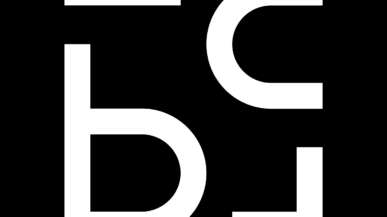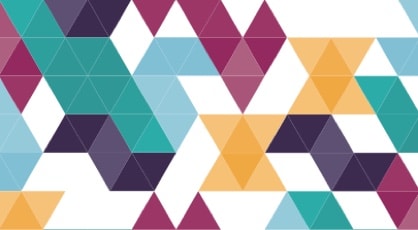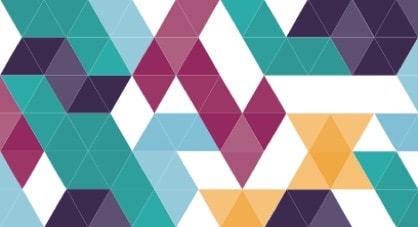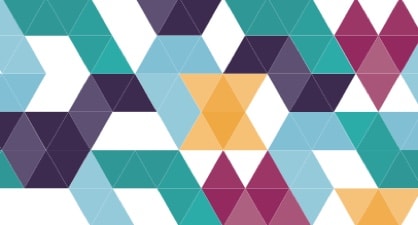Call for proposal
INCLUSION MATTERS!
Indonesia Innovate and Learn Grant V-21166-ID-IL
-
Grant amount
Maximum €200,000Project Duration
18 - 30 MonthsClosing date
31 Mar 2021 -
-
-
Grants
The need for diversity and inclusion in development programmes is becoming increasingly important. The exclusion of rightsholder groups still persists, especially when looking at the intersection of group identity and social class. According to the Voice Indonesia Context Analysis, updated in 2020, gender identity and disability remain to be the most prominent elements of exclusion. Being young or part of an indigenous community further restricts one’s space for political participation. Rightsholders with multiple intersectionalities still experience the worst situations, some of which Voice has not yet reached.
These include:
- Women with disabilities who are survivors of sexual violence and face difficulty in accessing social services;
- Young indigenous women who have never been involved in their community’s decision-making;
- Elderly persons with disabilities who tend to be confined to their homes due to the lack of inclusive facilities.
The contexts they face limit their access to education and employment. Today, all rights-based organisations need to focus on creating a culture of programme innovation promoting diversity and inclusion.
What are we looking for?
Voice is looking for innovations on social inclusion to support:
- effective online and offline advocacy approaches; and
- fostering social mobility and inclusion
through the integration of rightsholders’ needs in decision–making around the use of public resources for better outcomes in productive economic activities.
More specifically, we are looking for projects and solutions towards the economic empowerment of rightsholder groups to access markets and productive resources such as land, finance and water. Ideas which also have components of inter-movement collaborations and solidarity responding to
1) improved access to social services, in particular, healthcare and education;and/or
2) space for political participation
will have an advantage.
Proposals need to be at least 18 – 30 months (start latest in June 2021 and end 31st December 2023) with a budget of up to €200,000 (approx. Rp 3.200.000.000).
Voice recognises the importance of initiatives that support rightsholder groups facing multiple layers of exclusion. We have a strong preference for selecting projects that intend to work with more than one of the Voice rightsholder groups, to address overlapping or cross-cutting challenges and promote inter-and/or intra-group solidarity. For Indonesia, intersectionality will be the prime criterion in reviewing, shortlisting, and accepting proposals.
For more ideas on what issues Voice prioritises, take a look at the Voice Indonesia Context Analysis
What do we mean by…?
Inclusion – It is related to attitude, communication, accessibility & participation. It can be understood as a set of linked, unending processes to do with the participation of individuals: the creation of settings, systems (procedures, policies, and laws) that encourage participation; and with putting ‘inclusive’ values into action. All three are about everyone rather than about a particular group. More on Inclusion can be found here
Innovativeness – Innovative approaches are sought in all key components of Voice. Being innovative means not only creating new ways of working but also creating spaces for improvement in every step of the implementation of Voice, which can entail different steps in different contexts. This implies flexibility, to allow for the implementation of new ideas. For instance, reaching out to groups that have never been reached before requires creativity and flexibility to respond to new ideas.
If you have an innovative idea, method or approach, you are welcome to propose it to us!
Who can apply?
Innovate and Learn Grants are open to:
- Locally registered non-profit Indonesian organisations;
- Networks, consortium, alliances and coalitions with a locally registered non–profit Indonesia organisation as the lead applicant
- Locally registered Indonesia social enterprises
All applicants must be rightsholder-led or rightsholder-inclusive. An organisation (formal/informal) is rightsholder-led when it is governed and managed by members of the rightsholder-group(s). The principle of “Nothing About Us Without Us” guides their work. If rightsholders do not play roles in the governance and management of the organisation, the proposal needs to describe how they are rightsholder-inclusive. This means the rightsholder groups are fully involved in the conceptualisation, implementation, monitoring, and evaluation of the project.
International organisations and government organisations cannot be a lead applicant but can team up as a co-applicant in the case of consortium applications.
What we won’t fund
- Organisations with an annual turnover of over €2 million.
- Funding for commercial services, investment or other commercial activities.
- Projects led by current strategic partners of the Netherlands Ministry of Foreign Trade and Development Cooperation are not eligible for this call. In particular, those organisations funded under the “Dialogue and Dissent 2016-2020” and/or “Power of Voices 2021-2024” Policy Frameworks.
Practicing the Values of Voice
Voice believes in the principle of Nothing About Us Without Us. In practice, this means Voice rightsholder groups need to be at the centre of any effort. They must be involved in the conceptualisation, planning, and implementation of any grant. They are equal partners in any consortium, network, or coalition, playing key governance and leadership roles.
Linking and Learning
Linking and Learning is at the heart and soul of Voice. All grantees are expected to participate in facilitated meetings and gatherings enabling the exchange of ideas and learnings from other experiences. Applicants must demonstrate in their proposals how they will identify, document, and share their learnings as they implement their project. These may come in many forms such as blog posts, videos, photo essay or audio recordings.
Voice values diversity and inclusion. All grantees are expected to be able to interact with and learn from a diverse group of people coming from different backgrounds, orientations, and experiences. Interested applicants must be willing to work in a diverse community, which includes representatives from all of the Voice rightsholder groups.
From the numerous applications received the following grantees have been successful as part of this Call for Proposals. If you like to join Voice please see the current list of open Calls for Proposals Indonesia
Indonesia![Open Arms – Towards Inclusivity in Indonesian Art]()
Open Arms – Towards Inclusivity in Indonesian Art
Selasar Sunaryo Foundation (Yayasan Selasar Sunaryo, YSS)Indonesia![Improving access to employment and the protection of women workers with disabilities]()
Improving access to employment and the protection of women workers with disabilities
Perkumpulan SEHATI Sukoharjo-
About
The need for diversity and inclusion in development programmes is becoming increasingly important. The exclusion of rightsholder groups still persists, especially when looking at the intersection of group identity and social class. According to the Voice Indonesia Context Analysis, updated in 2020, gender identity and disability remain to be the most prominent elements of exclusion. Being young or part of an indigenous community further restricts one’s space for political participation. Rightsholders with multiple intersectionalities still experience the worst situations, some of which Voice has not yet reached.
These include:
- Women with disabilities who are survivors of sexual violence and face difficulty in accessing social services;
- Young indigenous women who have never been involved in their community’s decision-making;
- Elderly persons with disabilities who tend to be confined to their homes due to the lack of inclusive facilities.
The contexts they face limit their access to education and employment. Today, all rights-based organisations need to focus on creating a culture of programme innovation promoting diversity and inclusion.
What are we looking for?
Voice is looking for innovations on social inclusion to support:
- effective online and offline advocacy approaches; and
- fostering social mobility and inclusion
through the integration of rightsholders’ needs in decision–making around the use of public resources for better outcomes in productive economic activities.
More specifically, we are looking for projects and solutions towards the economic empowerment of rightsholder groups to access markets and productive resources such as land, finance and water. Ideas which also have components of inter-movement collaborations and solidarity responding to
1) improved access to social services, in particular, healthcare and education;and/or
2) space for political participation
will have an advantage.
Proposals need to be at least 18 – 30 months (start latest in June 2021 and end 31st December 2023) with a budget of up to €200,000 (approx. Rp 3.200.000.000).
Voice recognises the importance of initiatives that support rightsholder groups facing multiple layers of exclusion. We have a strong preference for selecting projects that intend to work with more than one of the Voice rightsholder groups, to address overlapping or cross-cutting challenges and promote inter-and/or intra-group solidarity. For Indonesia, intersectionality will be the prime criterion in reviewing, shortlisting, and accepting proposals.
For more ideas on what issues Voice prioritises, take a look at the Voice Indonesia Context Analysis
What do we mean by…?
Inclusion – It is related to attitude, communication, accessibility & participation. It can be understood as a set of linked, unending processes to do with the participation of individuals: the creation of settings, systems (procedures, policies, and laws) that encourage participation; and with putting ‘inclusive’ values into action. All three are about everyone rather than about a particular group. More on Inclusion can be found here
Innovativeness – Innovative approaches are sought in all key components of Voice. Being innovative means not only creating new ways of working but also creating spaces for improvement in every step of the implementation of Voice, which can entail different steps in different contexts. This implies flexibility, to allow for the implementation of new ideas. For instance, reaching out to groups that have never been reached before requires creativity and flexibility to respond to new ideas.
If you have an innovative idea, method or approach, you are welcome to propose it to us!
Who can apply?
Innovate and Learn Grants are open to:
- Locally registered non-profit Indonesian organisations;
- Networks, consortium, alliances and coalitions with a locally registered non–profit Indonesia organisation as the lead applicant
- Locally registered Indonesia social enterprises
All applicants must be rightsholder-led or rightsholder-inclusive. An organisation (formal/informal) is rightsholder-led when it is governed and managed by members of the rightsholder-group(s). The principle of “Nothing About Us Without Us” guides their work. If rightsholders do not play roles in the governance and management of the organisation, the proposal needs to describe how they are rightsholder-inclusive. This means the rightsholder groups are fully involved in the conceptualisation, implementation, monitoring, and evaluation of the project.
International organisations and government organisations cannot be a lead applicant but can team up as a co-applicant in the case of consortium applications.
What we won’t fund
- Organisations with an annual turnover of over €2 million.
- Funding for commercial services, investment or other commercial activities.
- Projects led by current strategic partners of the Netherlands Ministry of Foreign Trade and Development Cooperation are not eligible for this call. In particular, those organisations funded under the “Dialogue and Dissent 2016-2020” and/or “Power of Voices 2021-2024” Policy Frameworks.
Practicing the Values of Voice
Voice believes in the principle of Nothing About Us Without Us. In practice, this means Voice rightsholder groups need to be at the centre of any effort. They must be involved in the conceptualisation, planning, and implementation of any grant. They are equal partners in any consortium, network, or coalition, playing key governance and leadership roles.
Linking and Learning
Linking and Learning is at the heart and soul of Voice. All grantees are expected to participate in facilitated meetings and gatherings enabling the exchange of ideas and learnings from other experiences. Applicants must demonstrate in their proposals how they will identify, document, and share their learnings as they implement their project. These may come in many forms such as blog posts, videos, photo essay or audio recordings.
Voice values diversity and inclusion. All grantees are expected to be able to interact with and learn from a diverse group of people coming from different backgrounds, orientations, and experiences. Interested applicants must be willing to work in a diverse community, which includes representatives from all of the Voice rightsholder groups.
-
How to apply?
This Call for Proposals is closed and no longer accepting applications. Come back here at a later stage to learn about the grantees that have been selected in this Call for Proposals.
The current open Calls for Proposals can be found here.
-
This Call for Proposals is closed and no longer accepting applications. Come back here at a later stage to learn about the grantees that have been selected in this Call for Proposals.
The current open Calls for Proposals can be found here.
-
From the numerous applications received the following grantees have been successful as part of this Call for Proposals. If you like to join Voice please see the current list of open Calls for Proposals

-
Indonesia
![Open Arms – Towards Inclusivity in Indonesian Art]()
Open Arms – Towards Inclusivity in Indonesian Art
Selasar Sunaryo Foundation (Yayasan Selasar Sunaryo, YSS) -
Indonesia
![Improving access to employment and the protection of women workers with disabilities]()
Improving access to employment and the protection of women workers with disabilities
Perkumpulan SEHATI Sukoharjo
-





